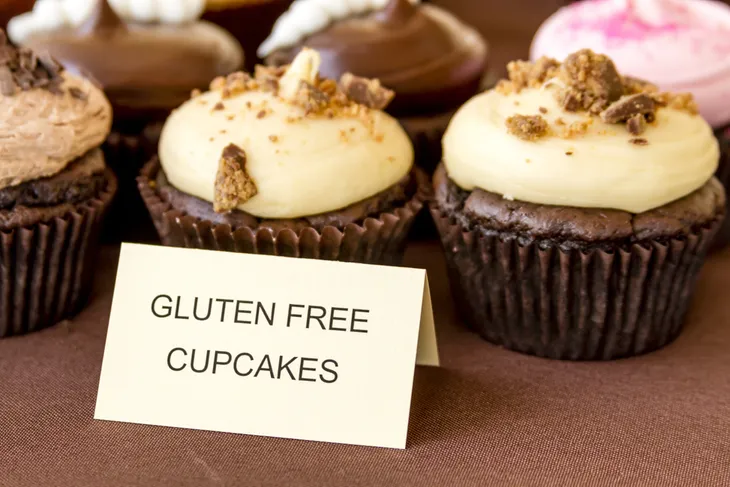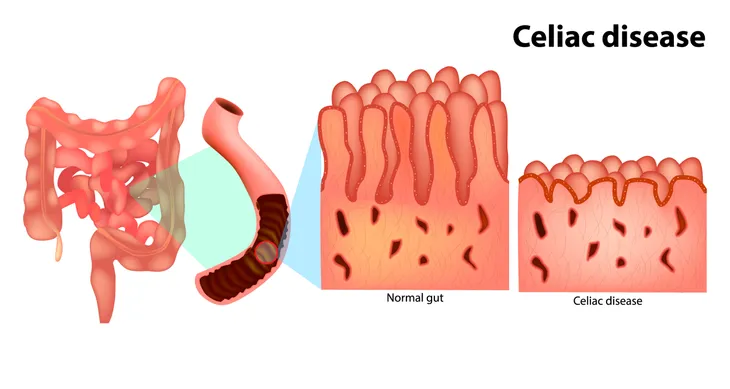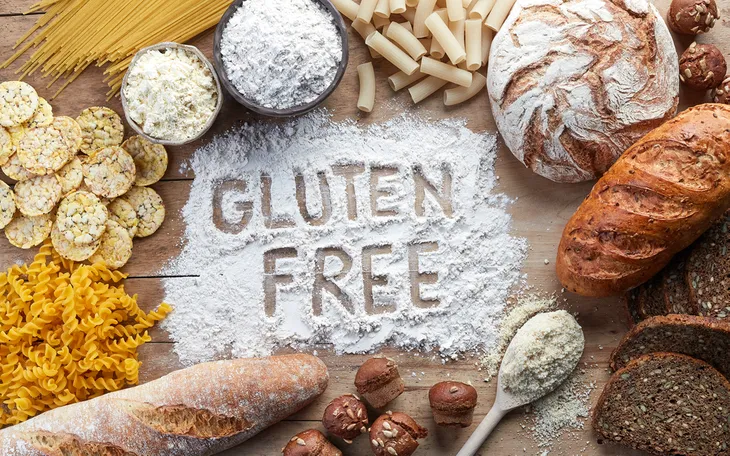If you venture to the grocery store, bagel shop, or bakery in this day and age, chances are you’ve come across a myriad of products with a “gluten-free” label smacked on the packaging. Our favorite snack foods, baked goods, and even our corner take out pizza restaurant likely offer gluten free alternatives.
But many of us don’t have the foggiest what going gluten free actually means. Let’s clear up six common misconceptions about going gluten-free…
Gluten Free Doesn’t Automatically = Healthy
My mother in law has recently jumped on the gluten free bandwagon to shed some excess weight. And while I love my mother in law (I’m very lucky), she considers anything food containing a gluten free label automatically healthy.
But she’s not alone. This University of Florida study conducted by the Institute of Food and Agricultural Sciences, revealed that one-third of participants considered all foods marked with a gluten-free label to be healthier than the gluten-containing foods. However, that’s not the case, considering that many so called gluten-free foods are made with starches (i.e., tapioca or potato flour, white rice flour and cornstarch), which contain almost no fibre and protein. Many gluten free processed foods still contain plenty of oil and sugar.
Gluten Free Has a Medical Purpose
Scientifically speaking, the gluten-free diet has a genuine medical reason behind it for those who suffer from celiac disease. Those suffering from the digestive and autoimmune disorder experience violent reactions when they ingest even the tiniest portion of gluten.
According to Alessio Fasano, medical director of Baltimore’s University of Maryland Center for Celiac Research, this painful immune reaction affects about 1 in 133 Americans. Consuming gluten with celiac gradually damages the small intestine, leading to nutritional deficiency, gastric distress, and even osteoporosis, intestinal cancer, and infertility if left untreated.
Non-Celiac Gluten Sensitivity
Research from the U.S. National Library of Medicine reveals that up to 6-percent of Americans also suffer from genuine non-celiac gluten sensitivity as well, but don’t suffer the same potential damage to their intestine. Non-celiac gluten sensitivity (or NCGS) experience symptoms of bloating, and erratic diarrhea/constipation after eating foods that contain gluten.
These symptoms disappear once gluten is cut from the diet. However, dieticians at NYU Langone Medical Center say that gluten intolerance is still pretty controversial because there is no test to confirm a health issue. Either way, avoid self-diagnosis whenever possible and consult with your health care provider before adopting any new diet.
Gluten Free and Weight Loss
You’ve likely had a family member, friend, or work colleague who can’t help bragging about how much weight they lost on a gluten free diet. Victoria Beckham swears by the gluten free diet to maintain her svelte bod, but she’s not reportedly gluten intolerant or even sensitive.
The idea that a gluten-free existence will trigger weight loss is a myth, according to Mark DeMeo, director of gastroenterology and nutrition at the Adult Celiac Disease Program at Chicago’s Rush University Medical Center. DeMeo says, “there’s nothing magical that’s going to help you lose weight,” but the fact that those following a gluten free regimen are cutting out sugar and processed foods may make it seem like weight loss magic.
Gluten Free vs. Carb Free
Many folks mistakenly think that gluten free and carbohydrate free are one and the same. However, while Livestrong.com explains that carbohydrates and gluten often go hand in hand (meaning breads and cereals containing wheat-, rye-, and barley-based flours also contain gluten as a natural component of wheat), these two substances are very different.
For instance, gluten is a collection of proteins found in wheat, barley, and rye gains—while carbohydrates contain sugar. So while fruits and veggies may be considered gluten free, they are not low carbohydrate foods. And while certain grains (i.e., rice and quinoa) are gluten free, they are still considered high-carbohydrate-rich.
What Does Going Gluten Free Mean?
No, going gluten free doesn’t mean you’ll be giving up only bread, pasta. Unbeknownst to many, gluten is a sneaky protein that lingers in many unexpected foods—including pasta sauces, soy sauce, lunch meats, salad dressings, prepared hot dogs and sausages, frozen dinners, potato chips, chocolate, processed foods containing malt flavoring or extract, and (gulp) beer.
Maryland-based registered and licensed dietician and nutritionist and certified personal trainer, Jennifer Christman explains that “Wheat, wheat starch, barley, rye, spelt, brewer’s yeast, and [some] oats all contain gluten…unless labeled gluten-free.” Also beware of gluten in products due to cross-contamination (i.e., fried foods, factories that produce both regular bread and gluten-free bread).









